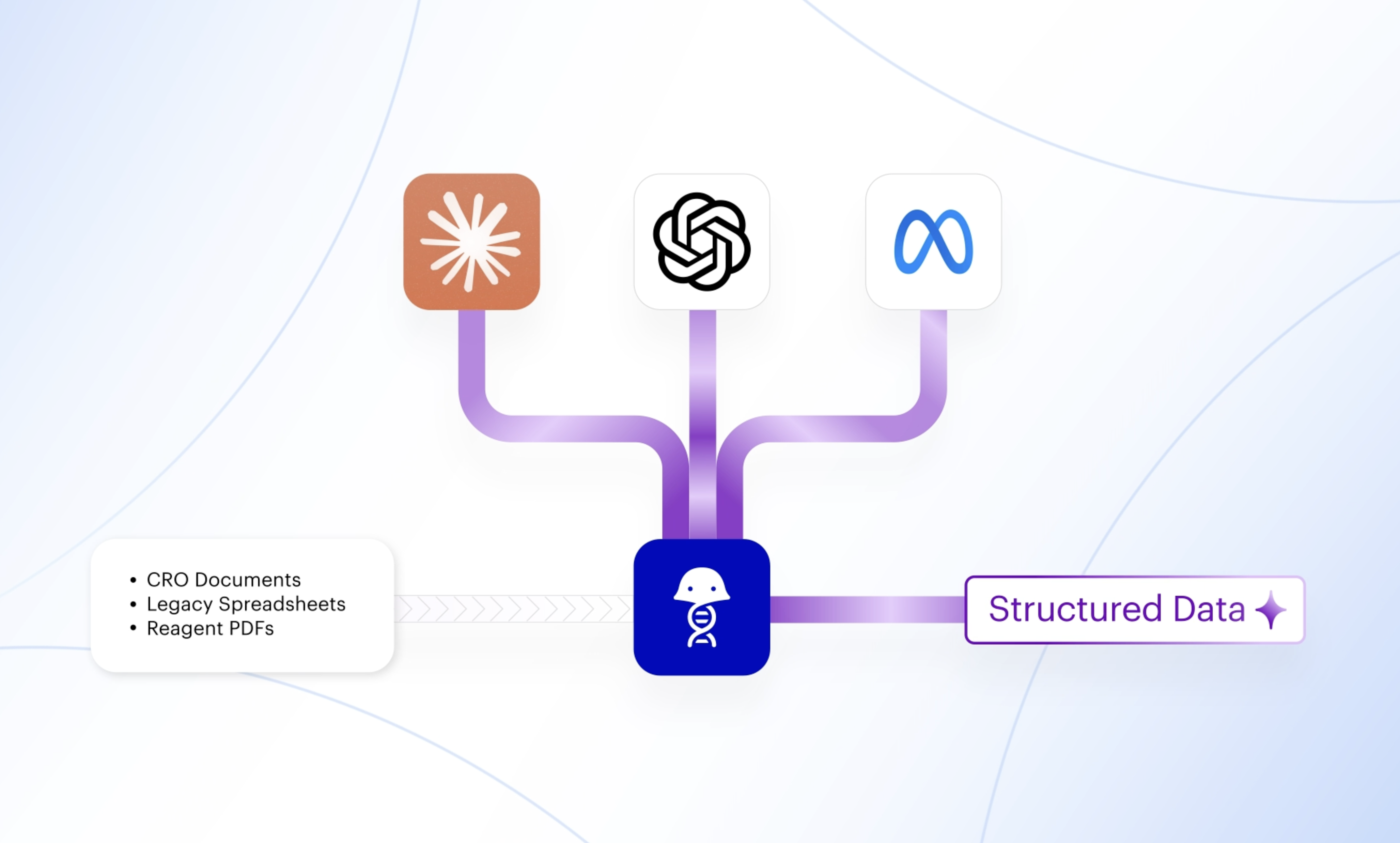Complex questions, fast answers: Benchling’s Deep Research Agent is now available in Preview
What if all of your experimental data could answer your next scientific question in minutes? That idea motivated us to start building Benchling’s Deep Research Agent a few months ago. Today, we’re excited to announce that Deep Research is available for any customer to try in Preview. It’s just one of the agents and tools we’ve built to improve how science is done with Benchling AI.
Scientists at over a dozen biotech companies have been testing Deep Research for the last few months. It’s been exciting to see the use cases so far — and there have even been a few applications that have surprised us. Deep Research holds so much potential for a scientist’s daily work, and we’re pushing as hard as we can to support all the ideas coming our way.
Here are a few examples of how Deep Research is helping teams answer complex questions that drive their science forward:
1. Tracing experimental lineage
A common problem scientists face is figuring out how a protein, cell line, or viral vector was designed and constructed. This information is also important outside the lab when writing critical IP and regulatory filings. Benchling already centralizes all the data around that construct into one place, but understanding and summarizing it into a report can take hours.
Deep Research makes this a simple prompt: “Write a report for how we engineered viral vector X, including the objective, methods, and results.” Within minutes, the agent dives into the data and returns back a detailed report, summarizing the viral vector’s lineage and key experimental data, complete with links back to the sequences, notebook entries, and more.
2. Synthesizing project updates
R&D leaders and project managers spend so much time aggregating all of the work happening in a project to present updates and forecasts. Scientists are already capturing their underlying experiments in Benchling, so a lot of that effort can be replaced with a single prompt to Deep Research: “Write a report about our progress on the lead optimization phase of program X, including a summary of the molecules tested and any remaining work.”
The agent will automatically look through relevant notebook entries, cross-team requests, and experimental data. It does more than just summarizing progress; it links back to molecule information and underlying experiments, allowing you to dig deeper into the work that was actually performed.
3. Comparing historical studies
Let’s say you’re looking at the results of two animal studies your organization ran years ago. The people who ran the study have left, and you’re trying to understand how the study designs were different. Deep Research saves hours of painstaking review of protocol documents and spreadsheets with a simple prompt: “Summarize the design of in vivo studies ST042 and ST043, including a table of key differences.”
The agent reasons through historical work, including unstructured data like old notebook entries or file attachments, helping you unlock new insights from legacy data.
Try Deep Research today
We’re talking to scientists every day about Deep Research, and they’re excited about not just increasing speed, but fueling the curiosity that drives science forward. We’ve always developed our product in close collaboration with scientists. Visit our Help Center to learn how to try Deep Research and give us your feedback.
Powering breakthroughs for over 1,300 biotechnology companies, from startups to Fortune 500s



